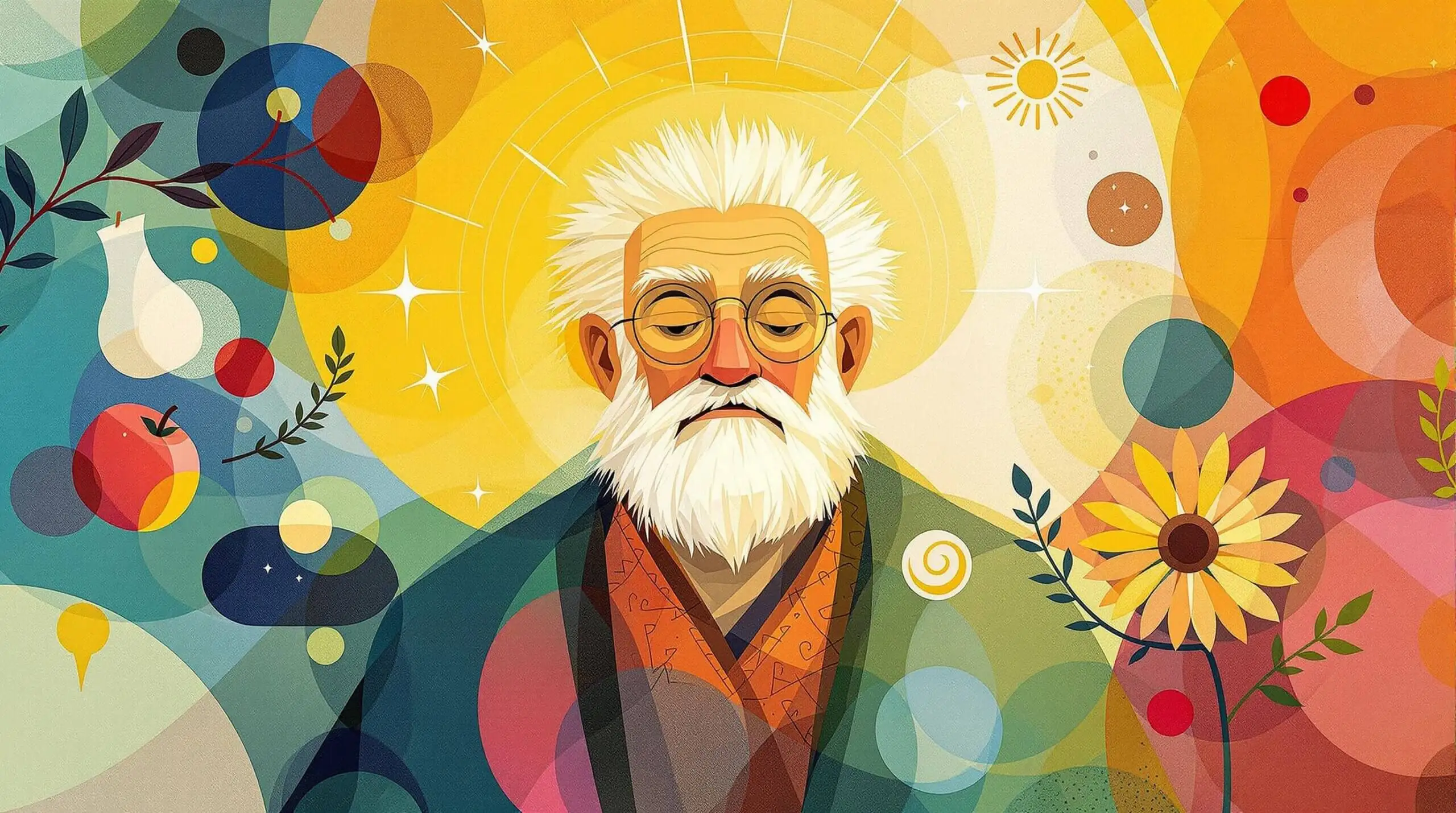The Aging Advantage: Leveraging Wisdom for Wellness
Discover how embracing the wisdom of aging can enhance your overall wellness.

Understanding Aging and Wisdom: The Foundations
The Revolutionary View of Aging
Aging isn’t the burden many believe it to be. Recent research reveals that our later years can offer distinct advantages, particularly in decision-making, emotional regulation, and overall life satisfaction. While society often fixates on the physical aspects of aging, science shows that our cognitive abilities evolve and improve in unique ways as we mature.
The Science of Wisdom Development
Our brains undergo fascinating changes with age. The neural networks responsible for emotional processing and decision-making become more refined. Studies show that older adults often make better decisions by integrating past experiences with current information. This process, known as crystallized intelligence, continues to strengthen well into our 60s and 70s.
Historical Perspectives on Aging and Wisdom
Ancient cultures revered their elders as repositories of wisdom and knowledge. Modern research validates this traditional view. The Berlin Wisdom Project, a landmark study, found that older adults excel in practical life knowledge, understanding social dynamics, and managing uncertainty. These findings challenge the notion that aging automatically means decline.
Common Myths and Realities
The biggest misconception? That aging inevitably leads to cognitive decline. While some aspects of fluid intelligence might decrease, other mental capabilities actually improve. Older adults show superior emotional regulation, better conflict resolution skills, and more effective decision-making in complex social situations. They’re also generally happier – research shows that life satisfaction often peaks in our 70s.
Current Research Insights
The numbers paint an optimistic picture. Studies indicate that vocabulary, general knowledge, and moral reasoning continue to develop past age 60. Research from Harvard shows that emotional intelligence peaks between ages 60-70. Additionally, older adults demonstrate better financial decision-making skills compared to younger counterparts.

Leveraging Age-Related Advantages
Emotional Intelligence and Social Wisdom
Aging brings remarkable improvements in emotional understanding. Older adults show enhanced ability to read social situations, manage conflicts, and maintain meaningful relationships. This emotional expertise translates into better mental health outcomes and stronger social connections – key factors in longevity.
Decision-Making Excellence
With age comes superior decision-making ability. Older adults process complex information differently, often arriving at better solutions by drawing on accumulated experience. They’re less likely to make impulsive choices and better at considering long-term consequences. This advantage extends to financial decisions, healthcare choices, and life planning.
Optimizing Cognitive Health and Wisdom
Brain Plasticity and Continuous Learning
Recent neuroscience discoveries show that our brains remain remarkably adaptable throughout life. Learning new skills, engaging in social activities, and maintaining intellectual curiosity create new neural connections. This cognitive engagement helps preserve mental sharpness while building upon existing wisdom.
Physical Activity and Brain Health
Exercise isn’t just for physical health – it’s crucial for cognitive function. Regular physical activity increases blood flow to the brain, stimulates new neuron growth, and helps maintain existing neural networks. Studies show that active older adults perform better on memory tests and show slower rates of cognitive decline.
Practical Strategies for Cultivating Wisdom
- Engage in regular social interactions
- Learn new skills or hobbies
- Practice mindfulness meditation
- Maintain physical exercise routines
- Read diverse materials
- Share experiences through mentoring
- Participate in community activities
- Keep a journal for reflection
- Pursue creative endeavors
- Engage in meaningful conversations
Nutrition and Cognitive Health
Diet’s Impact on Brain Function
Proper nutrition plays a vital role in maintaining cognitive health. The Mediterranean diet, rich in omega-3 fatty acids, antioxidants, and whole foods, shows particular promise in supporting brain health. Research indicates that this eating pattern can reduce cognitive decline risk by up to 35%.
Key Nutrients for Brain Health
Specific nutrients deserve special attention. Omega-3 fatty acids, found in fish and nuts, support neural communication. B-vitamins, particularly B12, help maintain nerve health. Antioxidants from colorful fruits and vegetables protect brain cells from damage. Adequate protein intake supports neurotransmitter production.
Social Connections and Wisdom Development
The Power of Social Networks
Social connections become increasingly valuable with age. Regular social interaction stimulates cognitive function, provides emotional support, and creates opportunities to share wisdom. Studies show that socially active older adults have better memory function and lower rates of depression.
Intergenerational Relationships
Connecting across generations offers unique benefits. Older adults who interact regularly with younger people show improved cognitive function and life satisfaction. These relationships allow for wisdom sharing while keeping older adults engaged with current trends and technologies.
Essential Components of Cognitive Wellness
- Regular physical exercise
- Brain-healthy nutrition
- Quality sleep habits
- Stress management techniques
- Social engagement
- Intellectual stimulation
- Creative expression
- Purpose-driven activities
- Regular health check-ups
- Memory-enhancing practices
Future Perspectives on Aging and Wisdom
Emerging Research Directions
Scientists are uncovering new aspects of cognitive aging. Research focuses on understanding how wisdom develops and identifying factors that promote healthy brain aging. Studies using advanced brain imaging show how social and emotional processing improve with age, offering insights into maximizing these advantages.
Technology and Cognitive Health
Digital tools open new possibilities for cognitive enhancement. Brain training apps, virtual social connections, and online learning platforms provide opportunities for continued growth. However, human interaction remains crucial – technology should complement, not replace, real-world engagement.
Cultural Integration of Elder Wisdom
Society benefits from integrating older adults’ wisdom into community structures. Mentorship programs, knowledge-sharing initiatives, and intergenerational projects create valuable connections. These programs help preserve cultural knowledge while providing meaningful roles for older adults.
Recommendations for Optimal Aging
- Build strong social networks
- Maintain physical activity routines
- Follow brain-healthy dietary patterns
- Engage in lifelong learning
- Practice stress management
- Share knowledge through mentoring
- Stay technologically connected
- Participate in community activities
- Maintain preventive healthcare
- Cultivate meaningful relationships
Aging brings valuable advantages in wisdom, emotional intelligence, and decision-making ability. By understanding and actively cultivating these strengths, we can enhance our later years while contributing meaningfully to society. The key lies in maintaining physical health, staying socially connected, and engaging in continuous learning. This approach creates a positive cycle of growth, where accumulated wisdom combines with ongoing development to enrich both individual lives and communities.